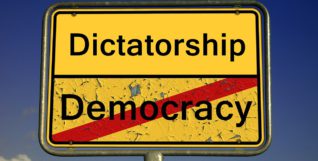
4 Ways To De-Stress During Exam Season
- March 11, 2018
- Xiomara Meyer
It’s upon us. And if it isn’t, it soon will be. It’s exam season!
You can’t think straight. You have about three essays, two presentations, and a whole load of reading to do, you can’t remember the last time you didn’t feel stressed out and you haven’t slept in days.
Here are 4 simple ways to help you get through the tough times.
Stay hydrated
“When I’m stressed, I need sugar, not water!”
It doesn’t have to be water, though. The main focus here is on the word hydration. “Previous studies have found when there is a water loss of around 2% of body weight then memory, attention and mood are adversely affected.”
If you’re really struggling to remember to drink, keep a water bottle next to you and set up an alarm reminding yourself to drink intermittently. By using a large bottle, you will find it easier to keep a track of how much you’ve drank.
This will quickly become routine and then you can get rid of the pesky alarm altogether. You can also spice up your water intake by trying out infused water, homemade ice teas (or regular hot teas), fruit/vegetable juice, or iced coffee.
Take a walk
“I don’t have time!”
Well…but if you don’t give your mind a moment to relax, you won’t be able to focus and then you’ll be wasting twice your time. Yup.
Set yourself a limit: either by time or by amount of work and then force yourself to go outside to breath fresh air. Move a little. Think about anything but studying. Even better, try not to think. Studies recommend taking a 10-15 minute break every 90 minutes, just enough to unwind your brain but allow it to ease right back to where you left!
Flash cards
“Do you really think I have time to be writing out stuff?”
Yes. Because we are better are remembering what we write. Even if you already have it written down in your notebook or on your laptop, writing it again will help solidify the information in your memory, and you can always use the flashcards to test your knowledge by writing exam questions at the front and answers at the back.
And if you want to go the extra mile, draw/add a quick image (doesn’t have to be a Picasso… even a squiggly line will do); it might sound silly, but remember our brains are basically large image processors: generally, we are better at remembering pictures than we are at remembering words, and if we can use memory association to connect picture with information, well remember them even more!
Studying before sleep
“I don’t know if I mentioned this but…I. don’t. have.time.”
It sounds easier said than done, but studying once before going to sleep is much more helpful than staying up all night going over the same thing.
We all know that getting our full seven hours sleep is useful to our cognition process, but did you know that going to sleep shortly after learning new material is most beneficial for recall? Memory occurs in 3 stages: acquisition (when you encounter/try to learn new information), consolidation (branding it into your memory) and recall (“fetching” it from your memory). Research says that consolidation is most effective during sleep, as sleeping engages the cortex which in turn helps solidify consolidation.
So the next time you learn something new, take a quick nap. Otherwise, arrange all your studying materials and give them a read right before calling it a night!
Inspiring Interns is a recruitment agency specialising in all the internships and graduate jobs London has to offer. Xiomara Meyer is a drama and creative writing graduate with an interest in psychology and the slightly bizarre. Samples of her prose can be found here







